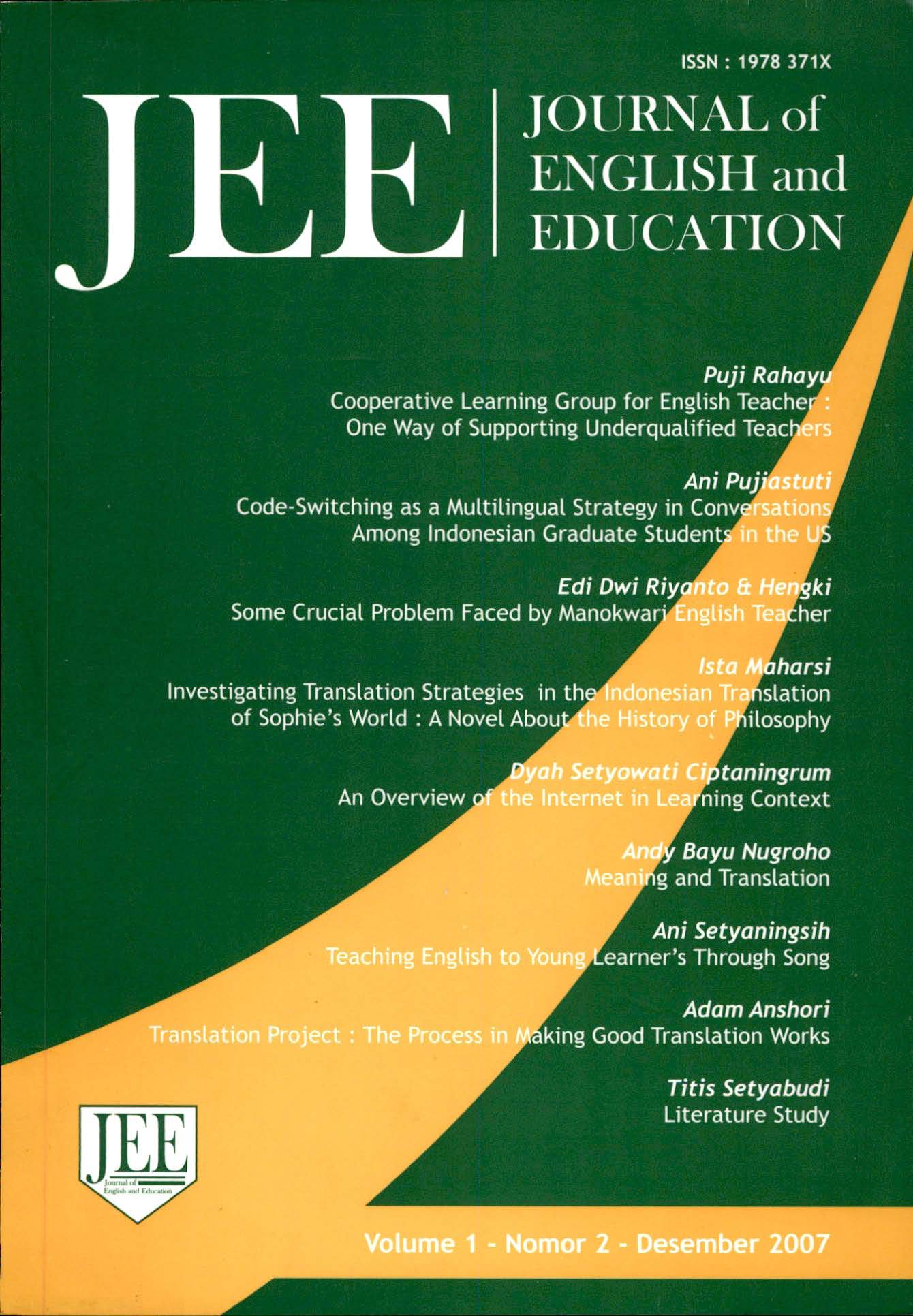Main Article Content
Abstract
Translating does not seem to be a trouble-free work. There are abundant tricks, strategies and adaptations to meet the need of being called 'sufficient' translation and thus it provides similar responses of the readers and brings about similar 'soul' of the original text. Translation works comprise many values and objectives of its author and the text itself. Not only is it a matter of transferring ideas or stories into other languages, but also a process of transferring culture, ideology, politics and social messages of the original text. This paper will discuss translation methods/strategies (the terms will be used interchangeably in this paper) that may be applied by the Indonesian translator in translating "Sophie's World" as well as investigate the values that are embedded in the translation version as compared to the original text. Two-page-alternative translations will also be offered as another option of applying translation methods.
Keywords
Article Details
Copyright (c) 2016 JEE, Journal of English and Education

This work is licensed under a Creative Commons Attribution-ShareAlike 4.0 International License.
Authors who publish with this journal agree to the following terms:
- Authors retain copyright and grant the journal right of first publication with the work simultaneously licensed under a Creative Commons Attribution-ShareAlike 4.0 International License that allows others to share the work with an acknowledgment of the work's authorship and initial publication in this journal.
- Authors are able to enter into separate, additional contractual arrangements for the non-exclusive distribution of the journal's published version of the work (e.g., post it to an institutional repository or publish it in a book), with an acknowledgment of its initial publication in this journal.
- Authors are permitted and encouraged to post their work online (e.g., in institutional repositories or on their website) prior to and during the submission process, as it can lead to productive exchanges, as well as earlier and greater citation of published work (See The Effect of Open Access).

